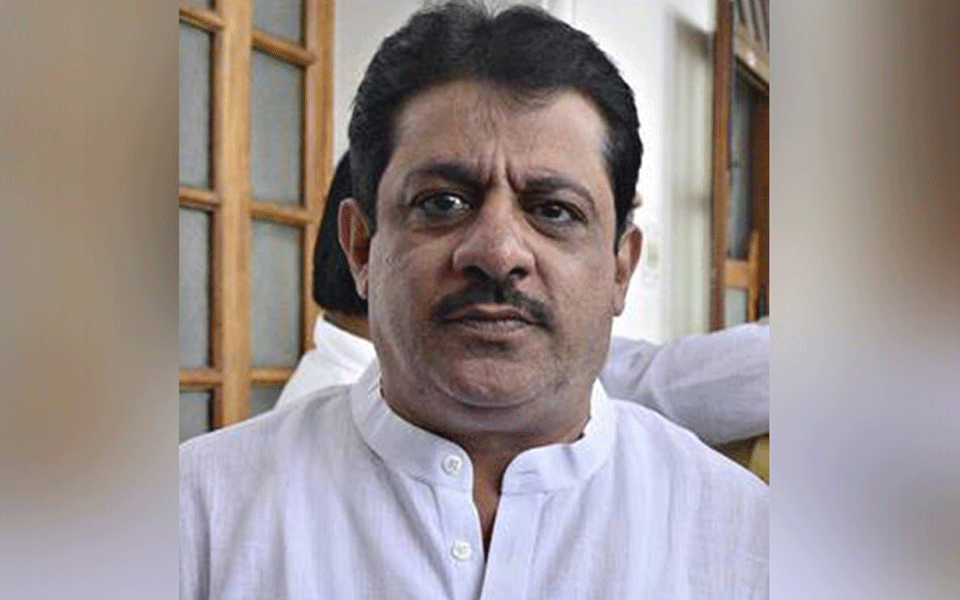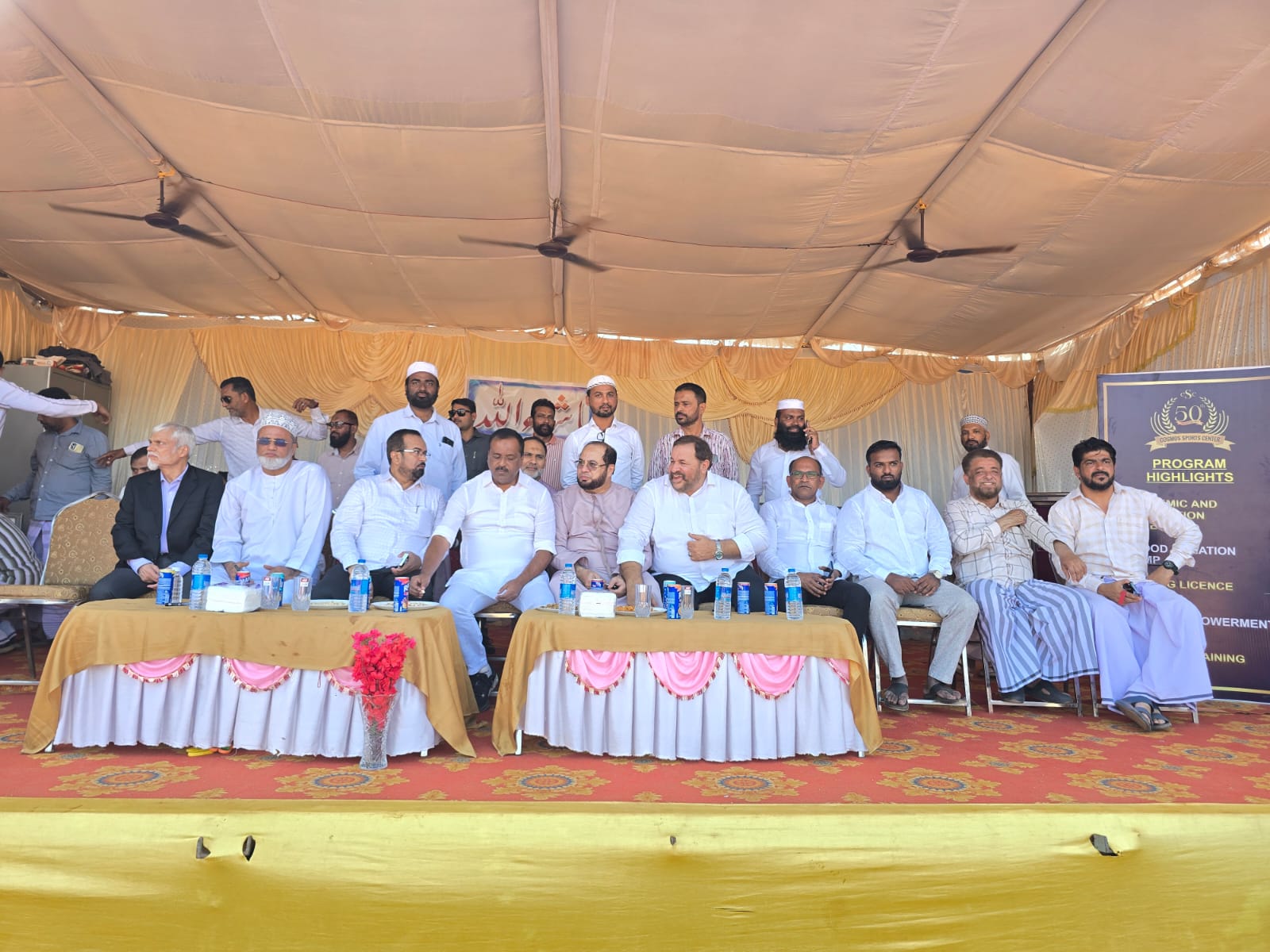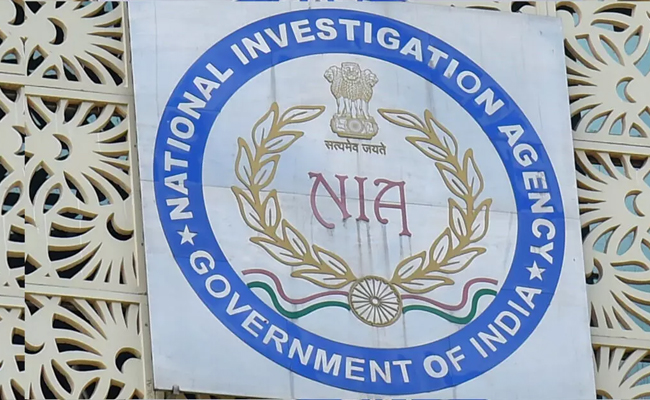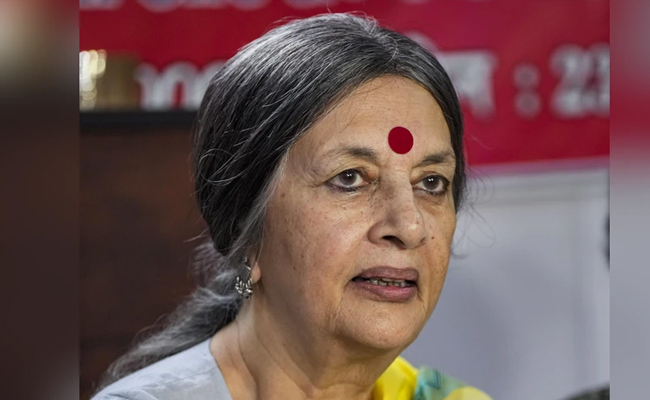Bengaluru, June 21: The first flight of the Hajj pilgrims leaving from the state in 2018 would leave for Madina from Mangaluru airport on July 21, said Minority Development, Hajj and Wakf Minister Zameer Ahmed Khan.
After holding a meeting with the officials at the State Hajj Committee office here on Thursday, the Minister said that total three flights would fly to Madina from Mangaluru airport. Apart from Mangaluru, the pilgrims would also fly from Bengaluru airport in 15 flights from August 1 to 15. The journey would be officially inaugurated at Hajj Bhavan in Tirumenahalli in the city on July 31. Chief Minister HD Kumaraswamy would inaugurate the flight journey, while Union Minister for Minority Affairs, Mukhtar Abbas Naqvi, Opposition Leader in the Rajya Sabha Gulam Nabi Azad and other national leaders would be presented, he said.
Total 540 pilgrims of Gulbarga region would leave for Madina through Hyderabad airport from August 1 and pilgrims from Belagavi region would leave from Goa airport from July 26 to 28, he said.
This time, total 18,000 persons applied for Hajj pilgrimage from the state. But total 6624 persons allotted from the state by the central government were selected through lottery and reservation, he said.
Food Ministers meeting
The Central government has convened a meeting of the Food Ministers of all states in New Delhi on July 29 and 30. He would also participate in the meeting. At this time, he would also discuss with Mukhtar Abbas Naqvi and Foreign Minister Sushma Swaraj on getting additional quota for Hajj pilgrims from the state, he said.
Additional fee is being collected from the Hajj pilgrims from the state and it might cause additional burden on them. He would discuss the issue with the Union Minister and Indian Hajj Committee, the Minister said.
As the State Haj Committee building is old one, the office would be shifted to the newly built Hajj Bhavan after the completion of the process of Hajj pilgrimage. After demolishing the old structure, he would discuss with the senior leaders of the community on constructing the new building, he said.
Let the Truth be known. If you read VB and like VB, please be a VB Supporter and Help us deliver the Truth to one and all.
Bhatkal: Speaker of the Karnataka Legislative Assembly U. T. Khader visited Bhatkal in Uttara Kannada district on Saturday and attended a local cricket match being played as part of a tournament organised by the Cosmos Sports Centre of Bhatkal.
After attending a programme at Anjuman Hami-E-Muslimeen, Khader proceeded to the Bhatkal Taluka Stadium, where the tournament is underway. He was accompanied by office-bearers of the Cosmos Sports Centre and several local community leaders.
Those present during the visit included President of Majlis-e-Islah Wa Tanzeem and former JD(S) leader Inayathullah Shabandri, Vice President of Tanzeem Atiqur Rahman Muniri, General Secretary Abdul Raqeeb MJ, President of Cosmos Sports Centre Ismail Anjum, Managing Director of Mohtisham Complexes S. M. Arshad, former president of the Bhatkal Muslim Youth Federation Imtiyaz Udyawar, among others.
Addressing players and organisers, Khader extended his best wishes to the participating teams and urged the players to uphold the spirit of sportsmanship. He said such tournaments help promote unity and brotherhood among the youth.
The cricket tournament began on November 21 and will conclude with the final match on December 21. It is being organised as part of the golden jubilee celebrations of the Cosmos Sports Centre.
Cosmos Sports Centre is one of the member clubs of the Bhatkal Muslim Youth Federation and is known for its active role in promoting sports in the town. Apart from sporting activities, the centre is also involved in various social and community initiatives, including efforts to promote education among students.






